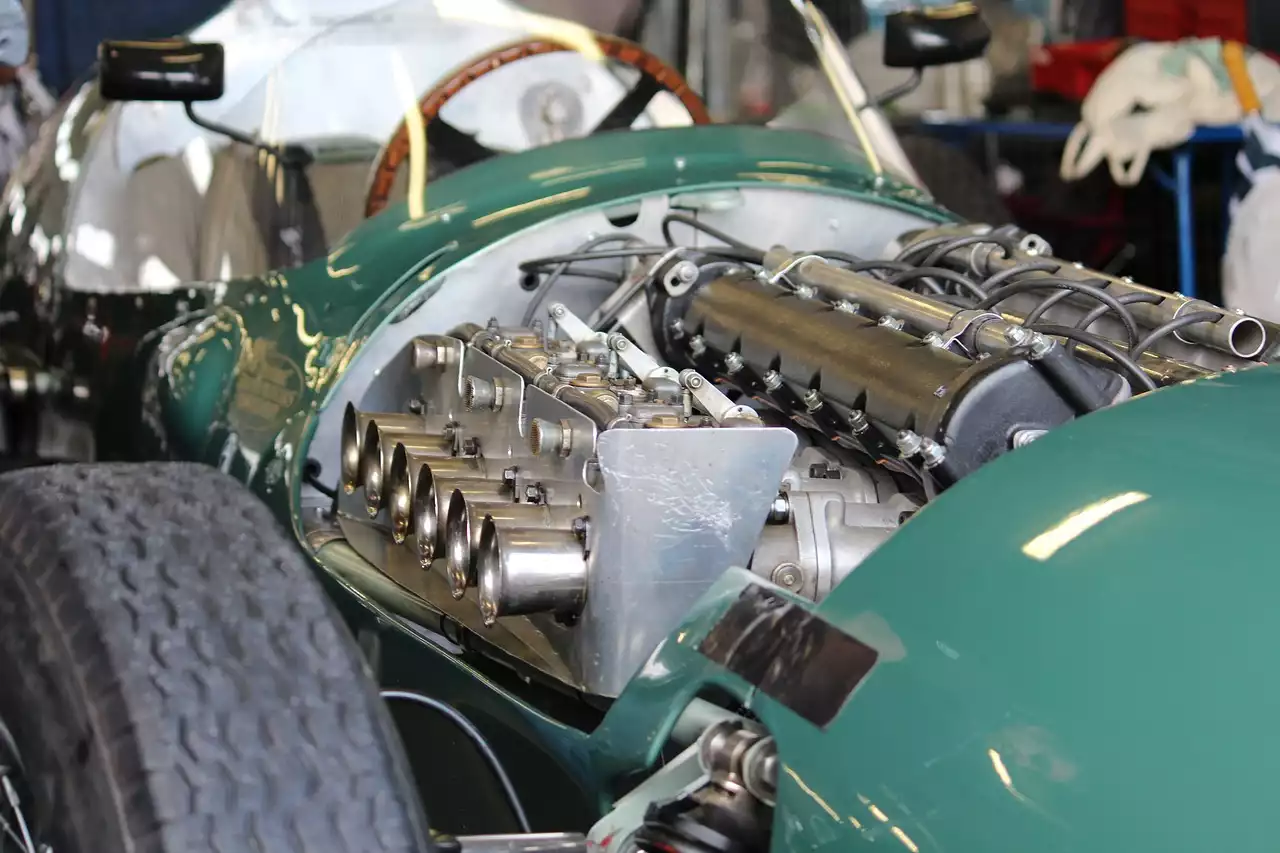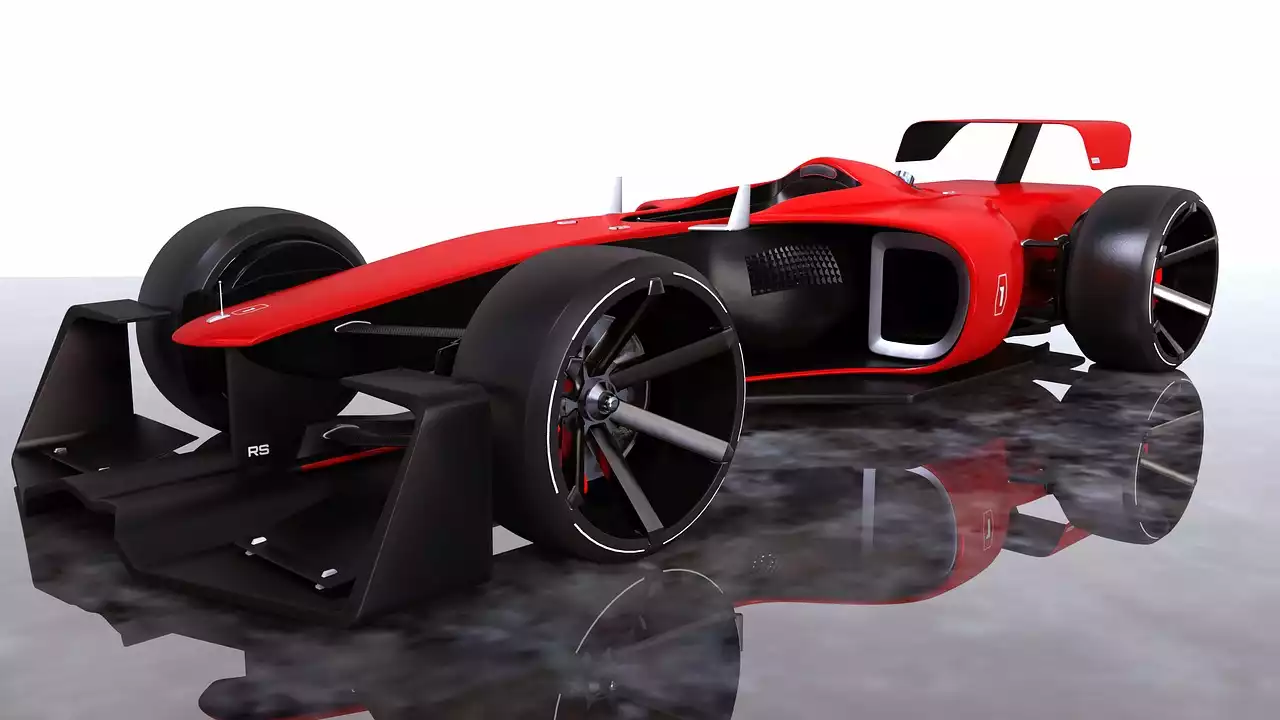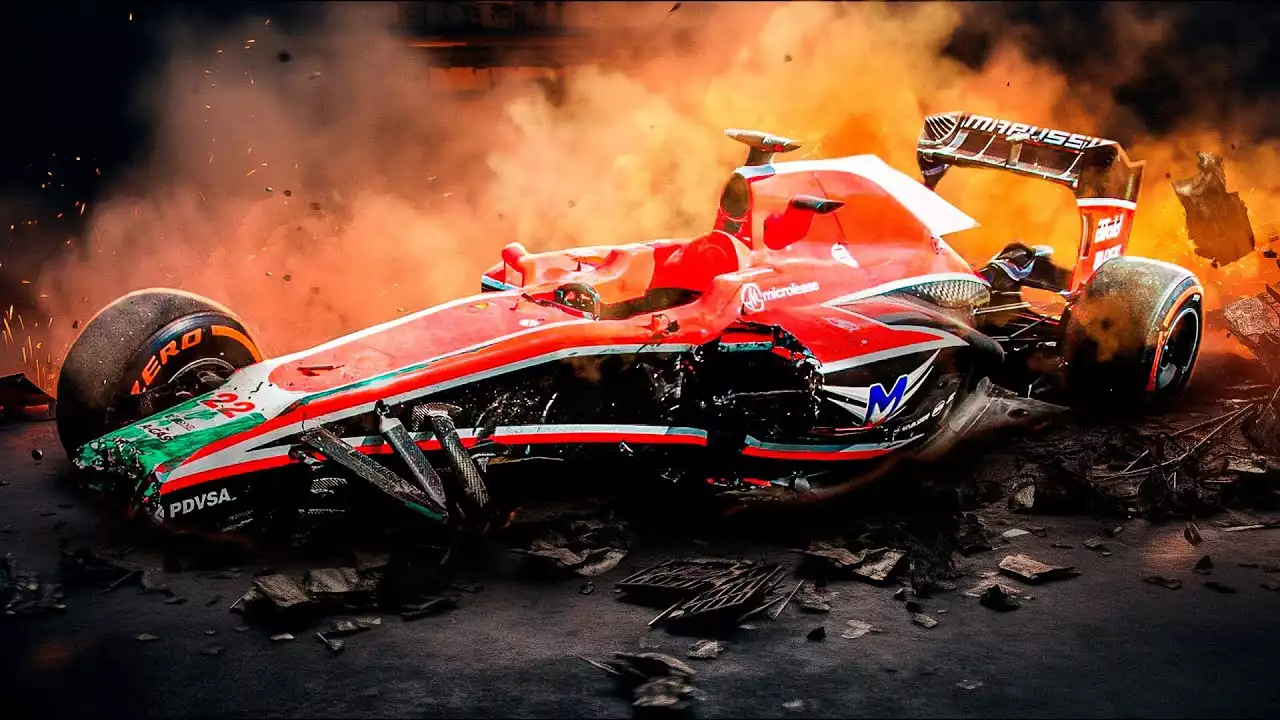Earliest milestones in F1 history
The first Formula One World Championship race was held at Silverstone, England, in 1950. Giuseppe Farina won the race, driving for Alfa Romeo, and went on to become the first-ever F1 World Champion. The F1 World Championship was then held annually, with the exception of 1955, which was canceled due to the Le Mans disaster that killed over 80 spectators. The early years of F1 were dominated by Italian manufacturers such as Alfa Romeo, Ferrari, and Maserati, who won all of the first eight Constructors' Championships.
One of the most memorable moments in F1's early history was the 1957 German Grand Prix at the Nurburgring. Juan Manuel Fangio, who was already a four-time World Champion, was trailing Mike Hawthorn in the race when he suffered a broken steering arm. Rather than retire, Fangio continued to drive with only three wheels on his car, eventually catching and passing Hawthorn to win the race. This incredible feat is still regarded as one of the greatest drives in F1 history.
Another milestone in F1's early years was the 1961 Italian Grand Prix at Monza. Phil Hill, driving for Ferrari, won the race and became the first American to win the F1 World Championship. Hill's victory was also notable because he narrowly beat out his teammate, Wolfgang von Trips, who was killed in a crash during the race. Hill's championship victory was a bittersweet moment for Ferrari, who were mourning the loss of von Trips.
The emergence of legends - milestones in the 1950s and 1960s
The 1950s and 1960s saw the emergence of some of the greatest drivers in F1 history. One of these drivers was Stirling Moss, who won 16 races during his career but never won a World Championship. Moss is best remembered for his victory at the 1961 Monaco Grand Prix, where he held off the charging Ferraris of Richie Ginther and Hill to win the race.
Another legendary driver from this era was Jim Clark. Clark won two World Championships and was known for his incredible car control and smooth driving style. One of Clark's most memorable moments came at the 1965 Belgian Grand Prix, where he won the race despite suffering from a broken gearbox. Clark's victory was a testament to his skill as a driver and his ability to adapt to difficult circumstances.
Perhaps the most iconic driver of the 1960s was Ayrton Senna. Senna won three World Championships and was known for his incredible speed and determination. One of Senna's most memorable moments came at the 1988 Monaco Grand Prix, where he set a qualifying lap time that was over 1.4 seconds faster than his closest competitor. Senna's lap is still regarded as one of the greatest qualifying performances in F1 history.
Groundbreaking moments in the 1970s and 1980s
The 1970s and 1980s saw a number of groundbreaking moments in F1 history. One of the most significant was the introduction of ground-effect aerodynamics in the late 1970s. Ground-effect aerodynamics allowed cars to generate greater downforce, which improved their cornering speed and stability. The Lotus 79, which was introduced in 1978, was one of the first cars to utilize ground-effect aerodynamics and went on to win the Constructors' Championship that year.
Another milestone in F1's history came in 1981, when the FIA introduced a ban on turbocharged engines. Turbocharged engines had been introduced in the late 1970s and had revolutionized F1, allowing cars to produce significantly more power. However, the FIA was concerned about the safety implications of turbocharged engines and decided to ban them. The ban remained in place until 1987 when turbocharged engines were once again allowed in F1.
The 1980s also saw the emergence of one of the greatest rivalries in F1 history – that between Alain Prost and Ayrton Senna. Prost and Senna had a number of memorable battles on track, including their controversial collision at the 1989 Japanese Grand Prix, which ultimately decided the World Championship in Prost's favor. The rivalry between Prost and Senna is still regarded as one of the greatest in F1 history and helped to elevate the sport's popularity in the 1980s.
Technological advancements and milestones in the 1990s and 2000s
The 1990s and 2000s saw a number of technological advancements in F1, as well as some significant milestones. One of the most significant was Michael Schumacher's dominance of the sport. Schumacher won seven World Championships during his career, five of which were won consecutively between 2000 and 2004. Schumacher's achievements made him one of the greatest drivers in F1 history and helped to cement his place in the sport's pantheon.
Another significant milestone in F1's history came in 1996 when Williams introduced the world's first active suspension system. Active suspension allowed the car to adjust its suspension settings on the fly, improving its handling and stability. Williams' active suspension system was banned the following year, but it had a significant impact on F1's development and helped to pave the way for other technological advancements in the sport.
The 2000s also saw the introduction of a number of new rules and regulations aimed at improving safety in F1. These included the introduction of the HANS device, which is designed to prevent neck injuries in the event of a crash, and the introduction of the V8 engine, which was designed to reduce the speed of the cars and make them safer.
The 2010s - Milestones in the modern era of F1
The 2010s saw a number of milestones in the modern era of F1. One of the most significant was the introduction of the hybrid power unit in 2014. The hybrid power unit replaced the V8 engine and was designed to make the cars more fuel-efficient and environmentally friendly. The introduction of the hybrid power unit also led to a number of new technological developments in F1, including the use of ERS (Energy Recovery System) and MGU-H (Motor Generator Unit – Heat).
Another significant milestone in the 2010s was Lewis Hamilton's dominance of the sport. Hamilton won six World Championships during the decade, becoming one of the greatest drivers in F1 history. Hamilton's achievements also helped to elevate the sport's popularity, particularly in his home country of the UK.
The 2010s also saw the introduction of a number of new races, including the Azerbaijan Grand Prix and the Russian Grand Prix. These new races helped to expand F1's global reach and bring the sport to new audiences around the world.
Controversial moments in F1 history
F1 has had its fair share of controversial moments over the years. One of the most infamous was the 2005 United States Grand Prix, which saw only six cars start the race due to a dispute between Michelin and the FIA over tire safety. The race was a major embarrassment for F1 and led to significant changes in the sport's rules and regulations.
Another controversial moment in F1 history was the 2008 Singapore Grand Prix, where Nelson Piquet Jr. deliberately crashed his car to help his teammate, Fernando Alonso, win the race. The incident became known as "Crashgate" and led to the resignation of Renault team principal Flavio Briatore.
Memorable races and finishes
F1 has seen a number of memorable races and finishes over the years. One of the most famous was the 1979 French Grand Prix, where Gilles Villeneuve and Rene Arnoux engaged in a thrilling battle for second place. The two drivers exchanged positions multiple times during the race, with Villeneuve ultimately coming out on top.
Another memorable race was the 1993 European Grand Prix at Donington Park. Ayrton Senna produced one of the greatest opening laps in F1 history, going from fifth to first in just one lap. Senna went on to win the race, which is still regarded as one of his greatest victories.
Impactful milestones that shaped F1
F1 has been shaped by a number of impactful milestones over the years. One of the most significant was the formation of the FIA in 1946. The FIA is the governing body of motorsport and has played a key role in shaping the rules and regulations of F1.
Another impactful milestone was the introduction of the F1 World Championship in 1950. The World Championship gave F1 a level of legitimacy and helped to establish it as one of the world's premier motorsport events.
Finally, the introduction of the F1 Safety Car in 1973 was a significant milestone that helped to improve safety in F1. The Safety Car is used to slow down the field in the event of an accident or hazardous conditions and has helped to prevent serious injuries and fatalities in the sport.







.png?size=50)



